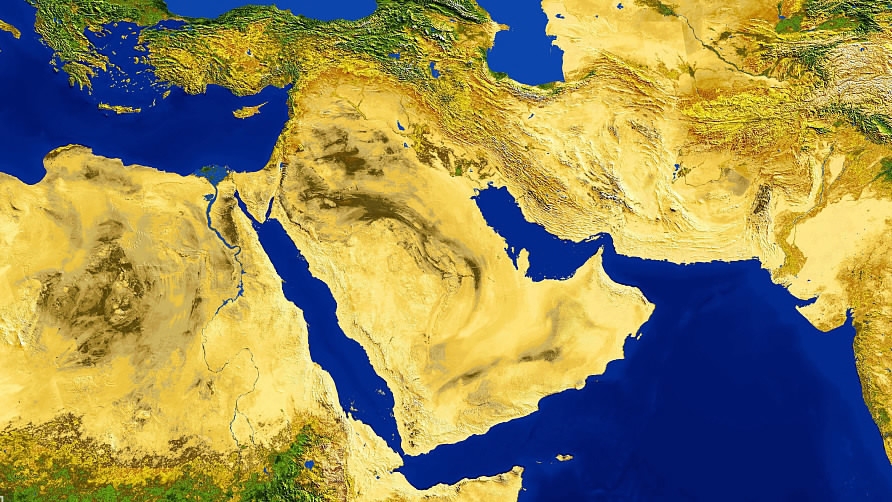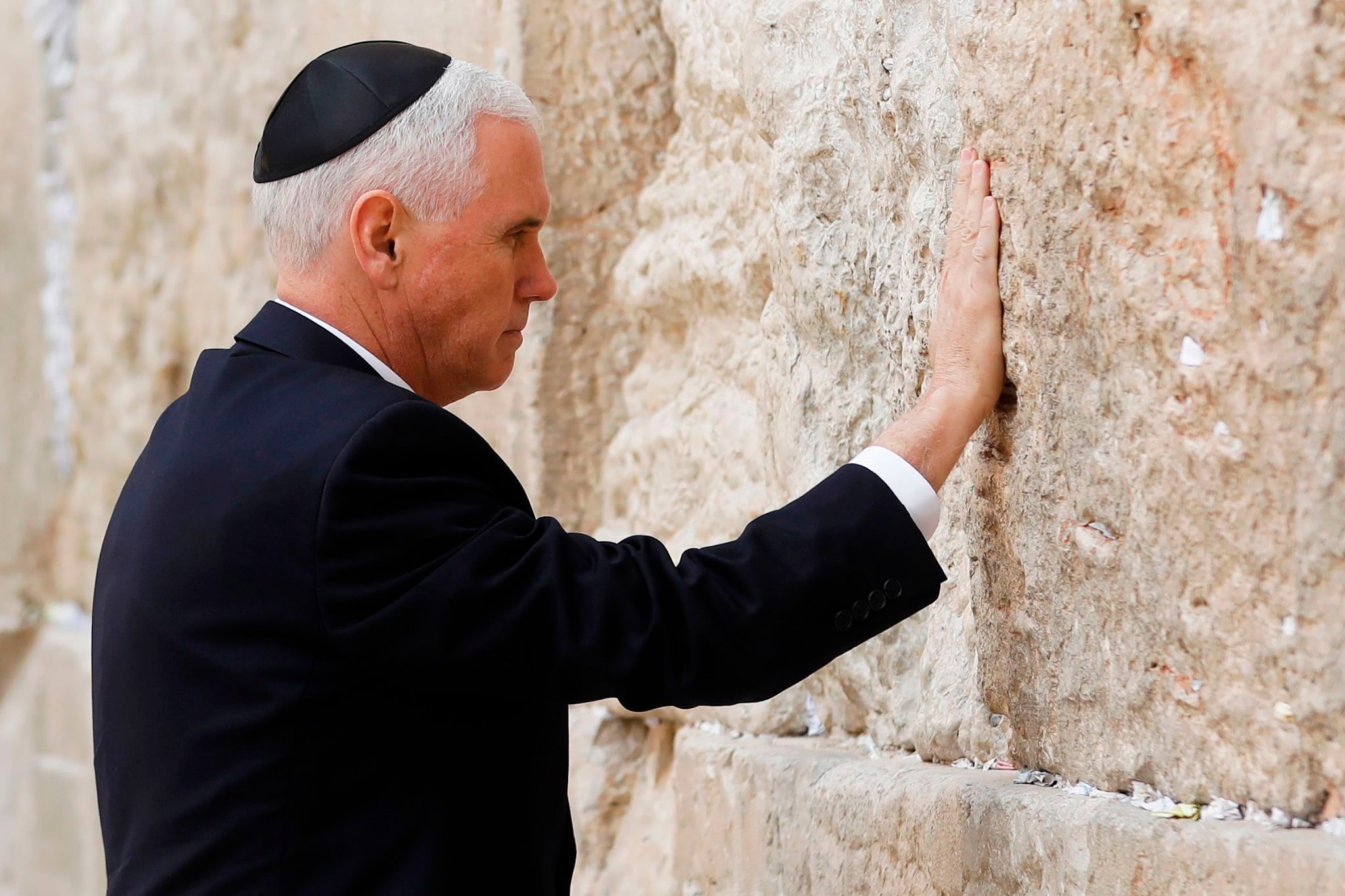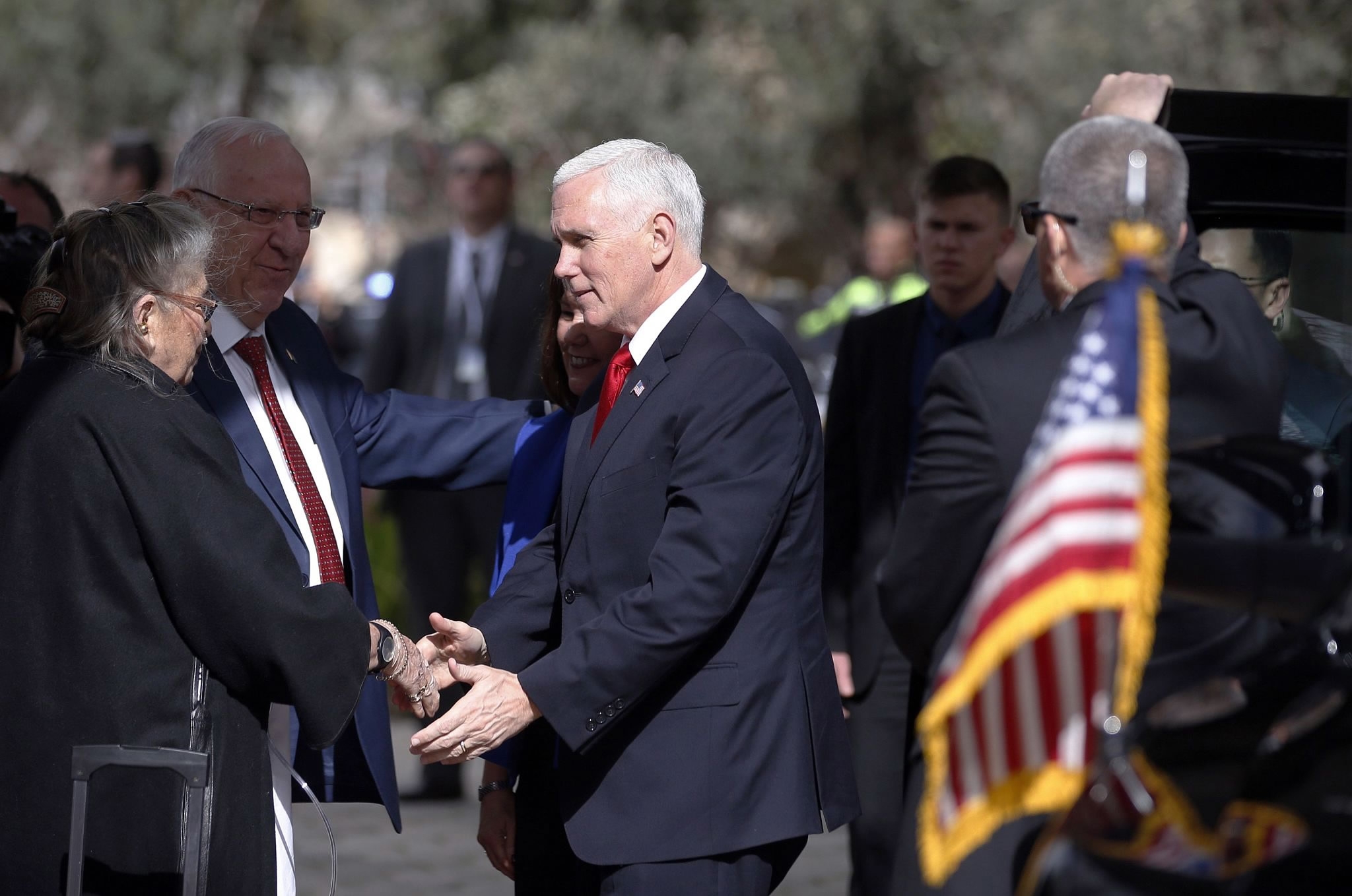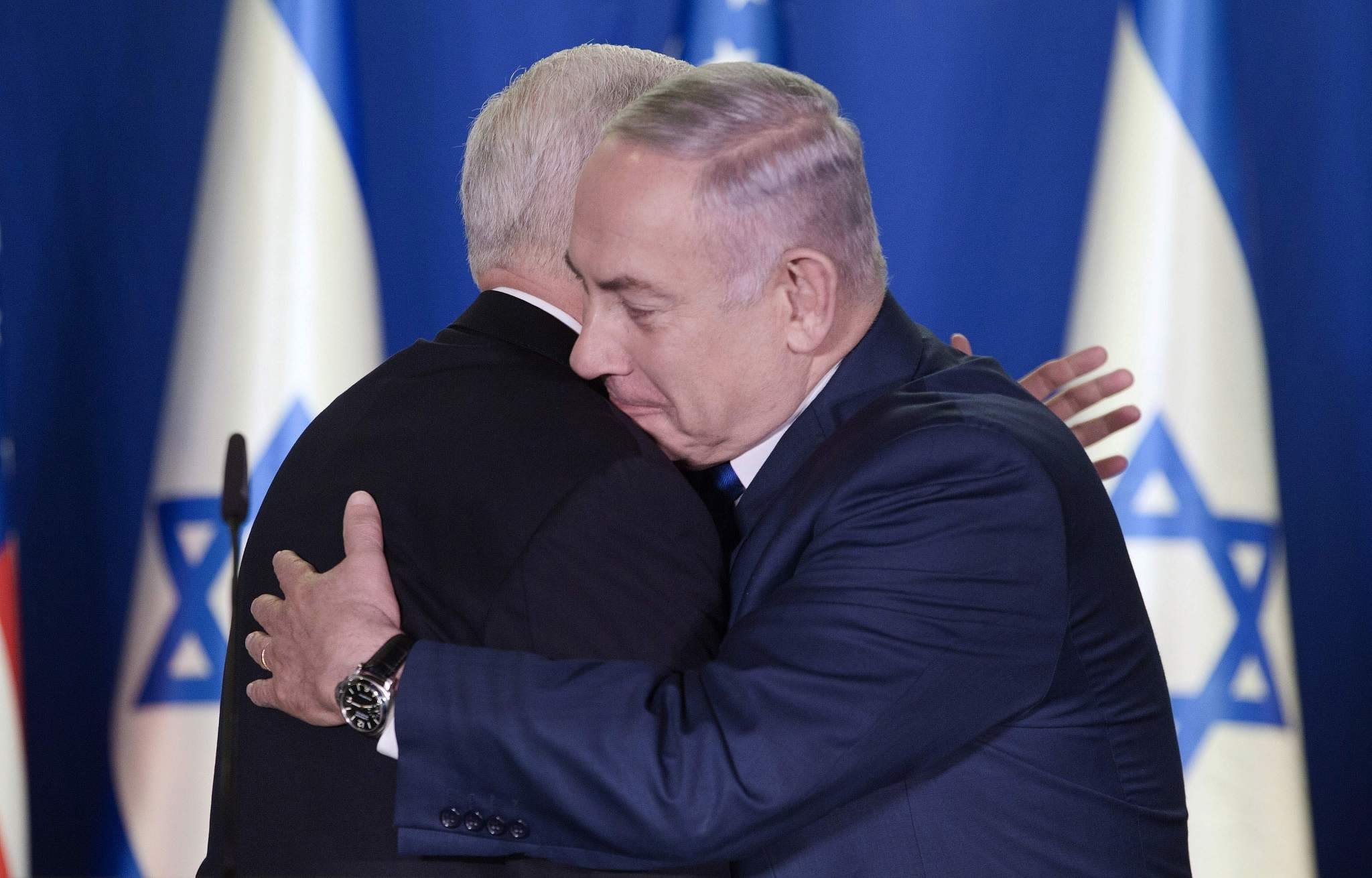
Opinions
23:02, 23-Jan-2018
Analysis: Will Pence succeed in the Middle East?
Guest commentary by Hassan A. Barari

Explicit in US Vice President Mike Pence’s visit to Egypt, Jordan, and Israel is blind political support for the Israeli right-wing government.
It is not as if he came to the region to assure the Arab side that the American Administration will act as an honest broker in the stalled Middle East peace process. In fact, he made it perfectly clear that America stands by Israel and that Trump’s decision is “good” for the peace process.
In his words, “President Trump truly believes that the decision the United States has made to recognize Jerusalem as the capital of Israel, we believe, will set the table for the opportunity to move forward in meaningful negotiations to achieve a lasting peace and end the decades-long conflict.”

US Vice President Mike Pence visits Jerusalem's Western Wall on January 23, 2018. /VCG Photo
US Vice President Mike Pence visits Jerusalem's Western Wall on January 23, 2018. /VCG Photo
Casting aside the importance of recognizing Jerusalem as the capital of Israel, observers will have a hard time understanding how this controversial decision can help push the peace process forward.
For peace to materialize, there should be a Palestinian partner who accepts Trump’s ill-advised decision. Thus far, the Palestinians have made it perfectly clear that America will not be the only broker. Senior Palestinian officials, Abbas included, snubbed the visit of Mike Pence.
Moreover, while Pence was cozying up to the Israelis on Monday, President Mahmoud Abbas paid a visit to Brussels where he lobbied members of the European Union to officially recognize a Palestinian state along 1967 borders. In an indirect jab at America, Abbas said that the European Union is the main partner for building a Palestinian state.

US Vice President Mike Pence shakes hands with Israeli President Reuven Rivlin's wife Nehama during a formal reception ceremony at the presidential residence in Jerusalem on January 23, 2018. /VCG Photo
US Vice President Mike Pence shakes hands with Israeli President Reuven Rivlin's wife Nehama during a formal reception ceremony at the presidential residence in Jerusalem on January 23, 2018. /VCG Photo
Against this backdrop, Mike Pence is not the right man to help jumpstart the stalled peace process. As an evangelical Christian, he was the driving force behind Trump’s decision on Jerusalem.
In his most recent statements, he has gone even further than Trump when he referred to Jerusalem as Israel’s undivided capital. Implicit in his statements is that the occupied East Jerusalem will also be part of Israel’s capital.
Indeed, his messianic messages are a gift to extremists within Israel who opposed peace with Palestine on an ideological basis. Hence, the Israeli government will be held hostage to the ideological demands of the extreme right wing who seeks to annex all Palestinian land.
On the other hand, this unqualified American support for the vision of the Israeli right wing will also be a gift to those Palestinians who opposed peace with Israel.

US Vice President Mike Pence (L) and Israel's Prime Minister Benjamin Netanyahu hug on January 22, 2018, in the Prime Minister's residence in Jerusalem. /VCG Photo
US Vice President Mike Pence (L) and Israel's Prime Minister Benjamin Netanyahu hug on January 22, 2018, in the Prime Minister's residence in Jerusalem. /VCG Photo
Never before has an American administration publicly taken such a stand in a clear breach of international law.
However, the American decision comes amid a period where the United States has become less respected, less feared and less influential in the Middle East. It seems that the American moment in the Middle East has come to an end. Therefore, American hegemony in this part of the world is eclipsed.
Let’s get to the bottom of the matter.
American foreign policy vis-à-vis the peace process has been plagued by two facts. First, American Arab allies are skeptical of the true intentions of the Trump administration. Not only is Trump untrustworthy, but he is too unpredictable. Second, the spread of anti-American sentiments in the Arab streets makes it even harder for Arab leaders to cooperate with America at the expense of the Palestinians.
Seen in this way, I am prone to say that his visit is doomed to fail to deliver.
(Hassan A. Barari is a professor of International Relations at the University of Jordan. The article reflects the author's opinion, and not necessarily the views of CGTN.)

SITEMAP
Copyright © 2018 CGTN. Beijing ICP prepared NO.16065310-3
Copyright © 2018 CGTN. Beijing ICP prepared NO.16065310-3